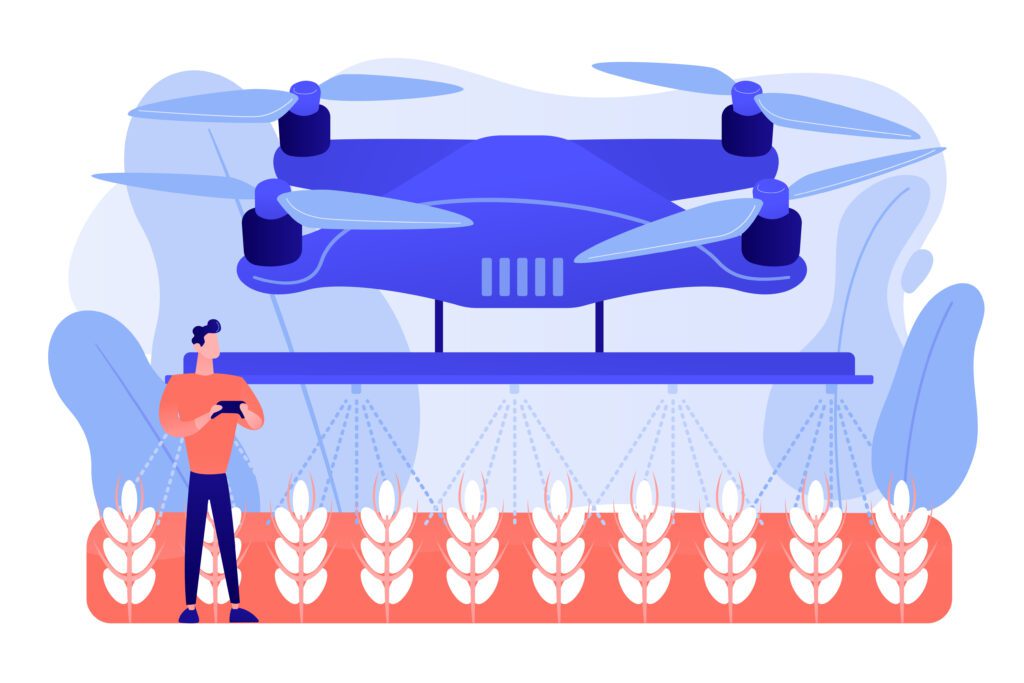Precision agriculture systems are management systems that help farmers to solve a wide array of problems. At the same time, precision agriculture includes multiple products that the growers need to master to make the most of their production.
What is Precision Agriculture in Simple Terms?
Precision agriculture uses modern technologies like satellite imagery or field mapping to improve crop quality and profitability. Also, it optimizes the use of traditional resources. Thus, the agricultural management system helps in the development of sustainable agriculture, solving both economic and ecological problems that are becoming more and more acute.

Some examples of technologies used in Precision Agriculture are GPS, satellite images, remote sensors, and drones. Based on the data collected with these tools, farmers will receive information on critical issues like crop status, environmental changes, weather forecasts and more. Also, the difference between traditional and precision farming is managing the fields in not a single block, but by dividing them into two or more separate management areas based on the data collected by these technologies.
The categorization allows easy diversification management decisions for individual field parts like adjusting the fertilizer amount and adjusting the fuel much more frugally.
Benefits of Precision Agriculture
The farmers can control every process remotely with precision agriculture systems. As a result, small farms can manage large fields or a group of small areas. It also improves the efficiency of crops and saves money while increasing production. This is crucial because precision agriculture technology is costly at first glance. However, the savings are much higher than the traditional agricultural methods in the long run.
Armed with these datasets, growers can clearly understand the required fertilizer amount and determine the effective fertilizer types for a specific area. Moreover, the benefit of precision farming technologies is that they improve the planning of agricultural operations for an extended period. This helps them to adjust the real-time strategy during the force majeure.
Utilizing precision agriculture technologies allows us to optimize the soil; preserving its overall health and quality. These practices help to ensure a stable food supply, which plays a crucial role in working to solve the global hunger problems our world faces.
Precision agriculture helps the growers and the environment as well. Also, these areas are interconnected because environmental degradation worsens agricultural conditions.
The following are the benefits of precision agriculture:
- Reducing the cost of resources and input materials like seeds, fuel, and water.
- Precision agriculture helps to maintain soil health because it reduces the pesticide use
- Reduces agriculture’s dependence on weather conditions
- Maximizes the genetic potential of the produced crops
Precision agriculture requires specific equipment and software to collect and analyse the information, and with that comes the requirement for software and hardware specialists to assist and implement the systems. With help from these specialists and others in the field, farmers could take advantages of these benefits that precision farming practices provide. For more information on how to begin your precision farming practices, contact SoilOptix® at https://soiloptix.com/
